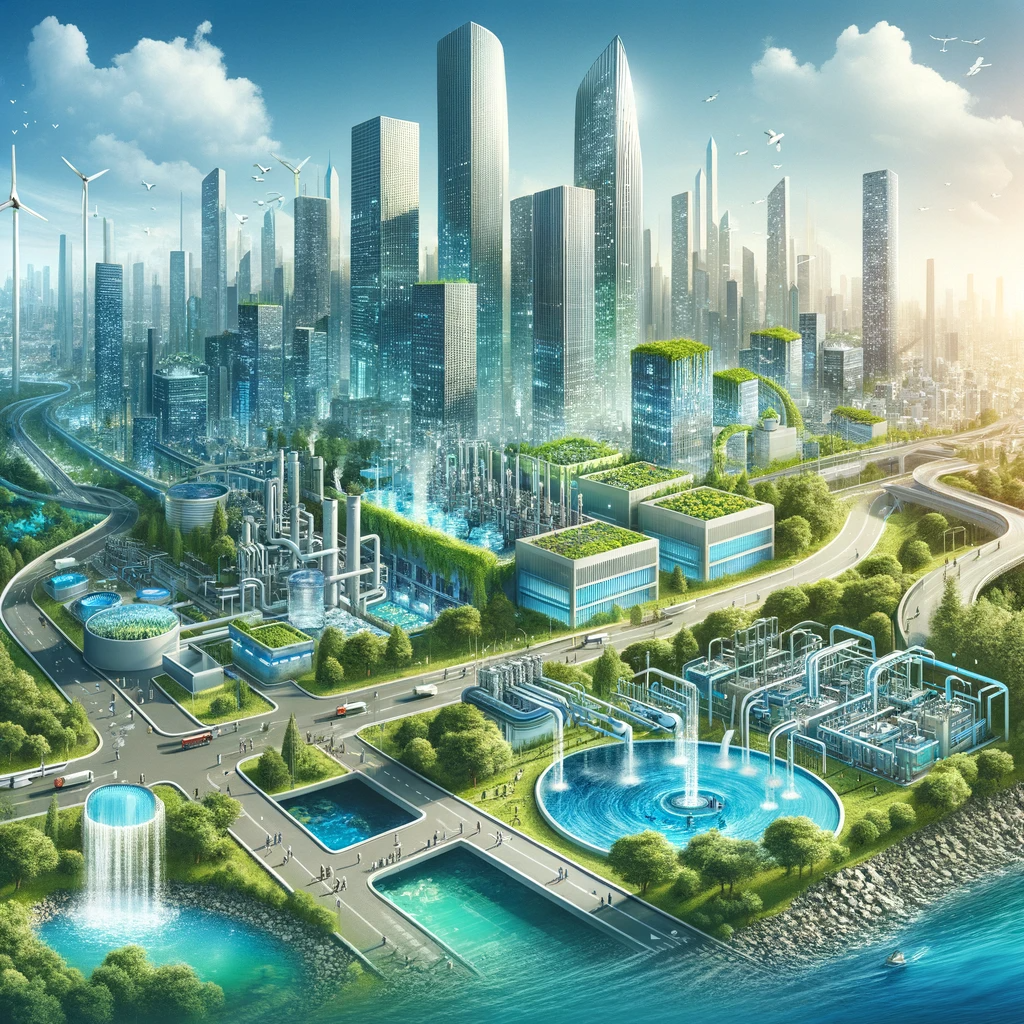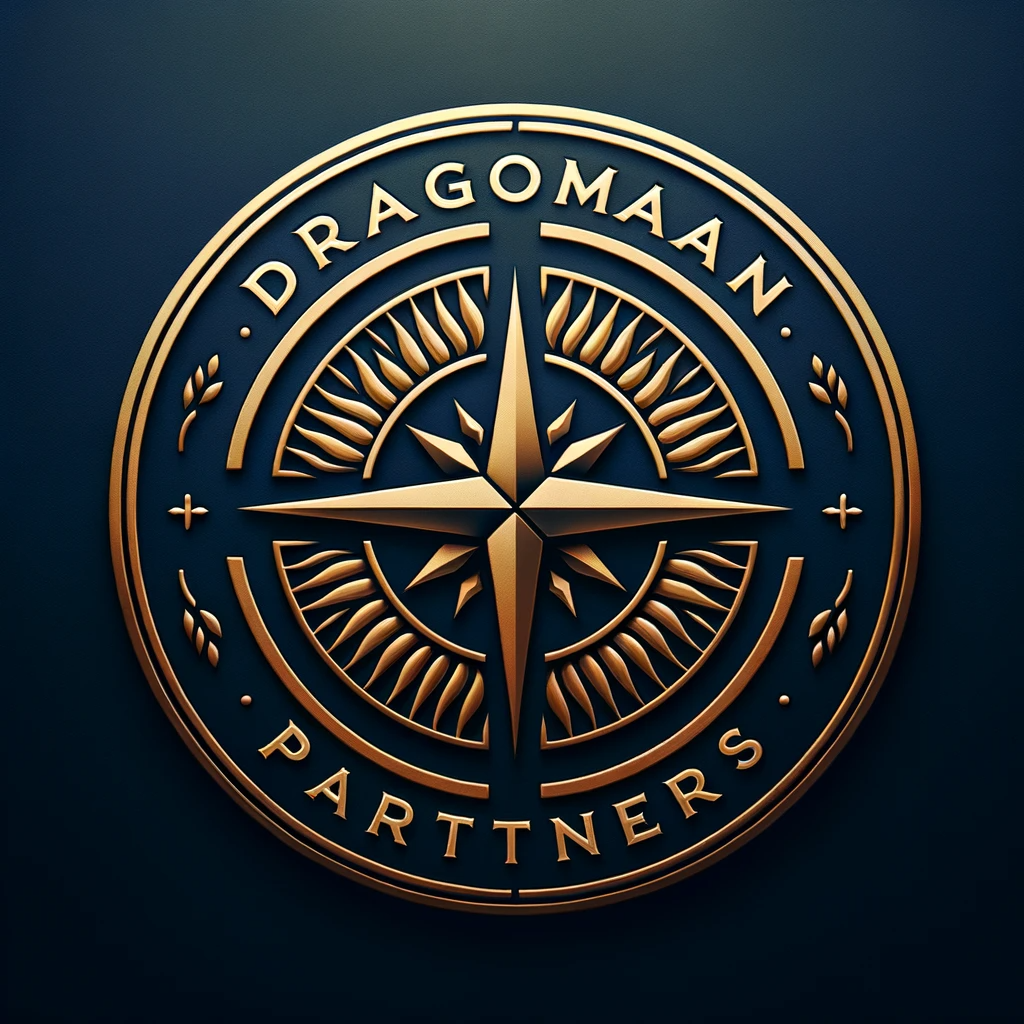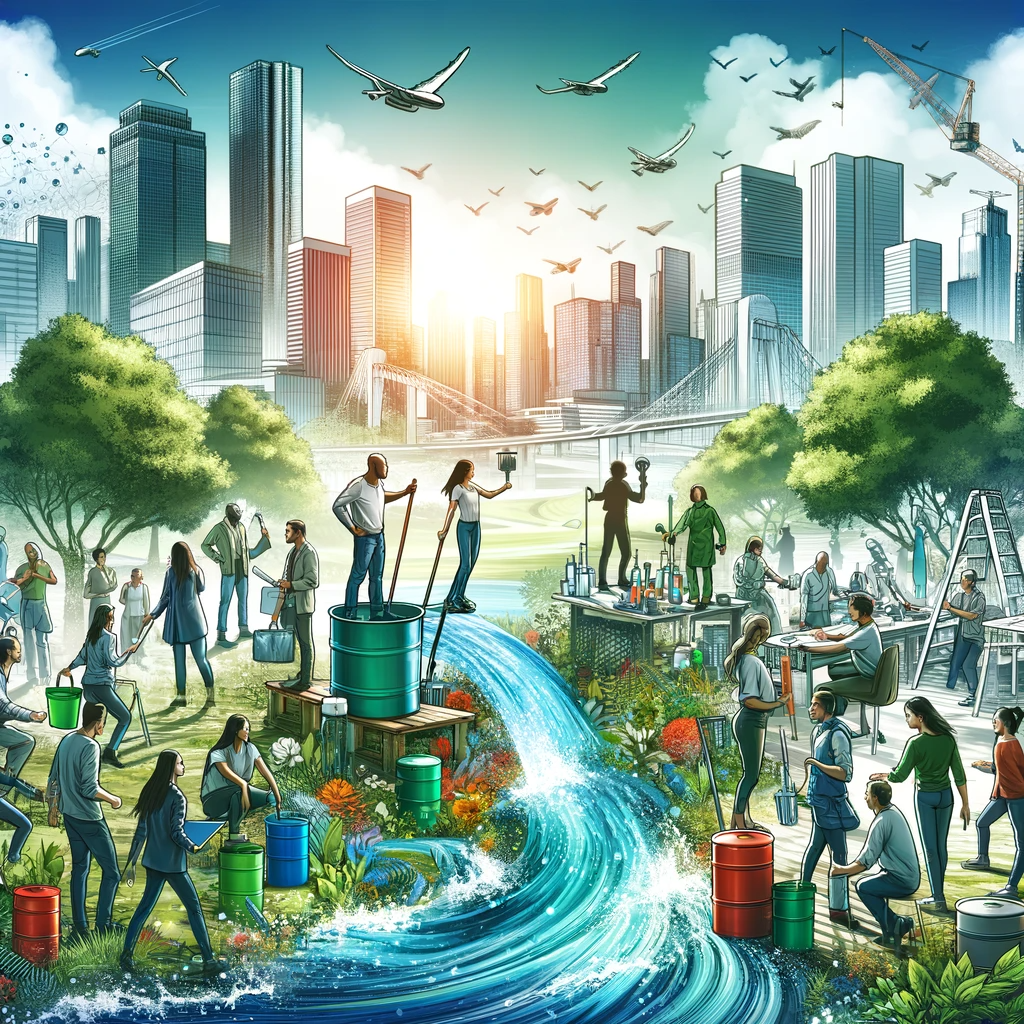Embracing the EcoWarrior Mindset
Eco-Warriors Unite: Waste Water Supply in Urban Sustainability is a pressing issue that requires immediate attention. As cities continue to grow and their populations increase, the challenges surrounding water supply and waste water management become more apparent. According to a World Bank report, the implications of water scarcity and water pollution are on the rise, affecting the economy and the quality of life for many. In light of these water stresses, it is crucial to adopt sustainable water practices and understand the principles of waste water reuse. By reusing waste water, we not only have the opportunity to alleviate water scarcity but also to benefit the economy and the environment. Case studies and research have shown that waste water treatment and effluent reuse can provide climate benefits, reduce energy use, and preserve water resources. Additionally, principles of waste water management such as the Wastewater Irrigation and Conservation for Economy and Resilience (WICER) approach developed by Diego Rodriguez, the Director of the Water Global Practice at the World Bank, offer a framework for understanding the outcomes and propositions of reusing waste water. It is clear that embracing the eco-warrior mindset is vital in addressing water challenges in urban sustainability.

The Environmental Impact of Urban Sustainability
Eco-warriors are coming together to address the environmental impact of urban sustainability. With the increasing efforts to create green cities, waste water supply has become a crucial aspect of urban sustainability. Eco-warriors recognize the importance of managing waste water in a way that supports the ability of communities to thrive. From community organizations to waste pickers, various groups are finding innovative ways to address the waste water problem in towns and cities. These changemakers are working towards a sustainable future for our planet by reducing the release of harmful substances into the atmosphere, conserving water resources, and promoting a circular economy.
As eco-warriors continue their efforts, it is essential to raise awareness and support for waste water management. With the right systems in place, waste water can be treated and reused to conserve our precious water resources. Recycling waste water not only reduces the strain on water sources but also provides a sustainable solution for irrigation and other non-potable water needs. By embracing recycling methods such as rainwater harvesting and desalination processes, cities can ensure a reliable water supply for their growing population. Eco-warriors are leading the way in advocating for sustainable practices and inspiring others to join in the fight for water sustainability.
Steps towards Becoming an EcoWarrior
Eco-Warriors unite in the fight for a sustainable future, starting with waste water supply in urban sustainability. To become an Eco-Warrior, we must begin by conserving water in our daily activities. Simple steps like reducing the time spent in showers, installing faucet aerators and low-flow showerheads, and fixing leaky toilets and faucets can make a significant difference. Collecting rainwater in buckets for watering plants or using it for dishwashing and flushing toilets can also help us reduce our reliance on groundwater supplies. By making these small changes in our plumbing systems, we can save thousands of gallons of water each year.
Another important step towards becoming an Eco-Warrior is to recycle waste water. This innovative practice allows us to reuse water from sources like sinks, showers, and dishwashers for non-potable purposes such as irrigation. By installing filtration systems or using natural filtration methods like wetlands, we can remove contaminants and make this recycled water safe for various uses. This not only conserves our freshwater resources but also reduces the risk of pollution from wastewater runoff into streams, rivers, and lakes. Recycling waste water is a sustainable choice that benefits both the environment and the community, making it an essential practice for all Eco-Warriors.
The Role of Waste Water in Urban Sustainability
Waste water plays a crucial role in achieving urban sustainability, and it is an area where eco-warriors can make a significant impact. Through extensive research and the development of innovative methods, waste water systems can be transformed into renewable energy systems, improving energy efficiency and sustainability in cities. This article explores the various strategies and technologies used in waste water management, as well as the potential for water quality control and indicators. Researchers such as Schäfer and Kirchner have conducted extensive data analysis and modelling to understand factors affecting water demand and consumption. The findings provide valuable insights and lessons for eco-warriors to communicate and implement eco-friendly waste water treatment and reuse systems, such as reverse osmosis. The availability of funding and materials, as well as potential conflicts and interplay between different stakeholders, are also discussed. Overall, waste water management presents a unique opportunity for eco-warriors to contribute to the transition towards more efficient and sustainable urban water supply systems.
Understanding Waste Water Management
Waste water management plays a crucial role in maintaining a sustainable urban environment, and eco-warriors are at the forefront of this effort. They understand the importance of ensuring a reliable and clean water source for cities. Various industries such as the clothing, hotel, finishing, food, and brewery industries contribute to waste water generation. Researchers like L. Wintgens, J.H. Melin, and Chang have studied the operation of waste water treatment plants in different cities, including Canary Islands, Vietnam, and Ho Chi Minh City. Their research methods have focused on water processes and reclamation techniques, with an emphasis on the development of electrocoagulation-flotation systems. The successful implementation of these strategies is crucial in tackling water scarcity, climate change, and the growing demand for fresh water.
Understanding waste water management involves comprehensive research on the implementation of various strategies such as sludge management and water reclamation. Case studies have shown that the combination of different processes, such as the use of films, electrocoagulation-flotation systems, and ultrafiltration/reverse osmosis, can effectively remove pollutants and improve water quality. Authors like M.A. Bodik and A.N. Angelakis have explored the potential of resource recovery from waste water, contributing to the economy’s circular strategy. Additionally, the deployment of efficient water treatment technologies like Membrane Bioreactors (MBR) and the exploration of business models are key factors in achieving sustainable waste water management. The efficient management of sludge is also a crucial aspect of waste water management, as it determines the overall efficiency and sustainability of the treatment process. Overall, understanding waste water management involves addressing various challenges and exploring innovative practices, offering opportunities for advances in the field.
The Benefits of Recycling Waste Water
In the quest for urban sustainability, recycling wastewater has emerged as a powerful solution. Eco-warriors understand the importance of reusing this valuable resource instead of simply disposing of it. By recycling wastewater, cities can reduce their dependence on freshwater sources, ensuring a sustainable water supply for both present and future generations. Numerous studies, including those by Neczaj, Salgot, Folch, Maryam, Kumar, L. Governance Arrangements, Front, Ashraf, G.H., Optimization, Van Hulle, Fito, Liao, Procedia, Natural Resources, Use, Perspectives, have highlighted the economic and environmental benefits of wastewater recycling. It not only helps in the conservation of natural resources but also contributes towards a greener and more sustainable city.
Recycling wastewater brings a multitude of benefits to urban areas. Research conducted by Qasim, Switzerland, Asian, Recycling, Meneguzzo, Economy Insight, K.A.G.M., Santos, Monitoring, Institute, Emerg, V., Choudhari, Quest, M.J., Data, Pressure, Food, UK, N.K., Kharraz, Chaudhuri, Pal, Pandey, Yadav, M.K., Amsterdam, Netherlands, McNeill, Sari, Topics, A.S., Drawson, Kirkman, Lacey, Aromataris, Block, Hens, Haeseldonckx, Vandecasteele, Cabello-Eras, Evolution, Koszewska, Autex Res, Firoiu, Ionescu, Croitoru, Pamfilie, Direction, K.J., S.L., Pei, S.Y., Chiang, Shah, H.M., Smith, Awad, Alalm, Taiwan, Alternatives, Improvement, Dobrucka, Jordan, Hamhaber, Growth, Jannik, Hart, Bringezu, Helander, Chaja, Jaroszewska, Tourism Smes, Jones, Korenak, Povodnik, Fan, Lyu, Tanzania, Nzila, Razzak, Earth, Res, Genon, Niu, Springer, Ray, Sarathy, López-Ortiz, S.H., Istirokhatun, Raharjo, Susanto, Ser, Z.H., Ulrich, Reymond, Rene, Carissimi, Bracher, Graepin, Song, Advancements, Treatment Plants, Products, India, Wynn, Capital, Mcaloone, Kravchenko, Sustainability Screening, Economy Initiatives, Pagliaro, Mcnabola, Perez-Sanchez, Lopez, Ramos, M.D.M., Bærenholdt, J.O., Greve, Sørensen, Ways, Valls, Vieira, Madeira, Lin, Yang, Jazbec, Mukheibir, Infrastructures, Syron, Mabr, Smol, Economy Model Framework, Preisner, Bortoleto, Maniero, Guimaraes, Junior, Transition Path, Jagtap, Skouteris, Rahimifard, Duong, Things, Laudicina, Mannina, Uptake, Cosenza, Project, Muscarella, Marino, Grimm, Learnings, View, Mbavarira, G.C., Definition, Tavares, Nobre, Álvarez, Jaca, Arndt, Wicke, Ternes, Duester, Waves, Van Der Graaf, De Koning, De Wilde, Stathatos, CRC Press, Lebanon, De La Varga, García-Montaño, Kubaska, X.C., Fatta-Kassinos, Duan, Operations, Concerns, Populations, Residents, have shown that recycling wastewater can help reduce pollution in water bodies, enhance water availability, and promote a sustainable and healthy environment. By embracing wastewater recycling, eco-warriors are contributing to the overall well-being of their communities and paving the way for a more sustainable future.
EcoWarriors and the Fight for Water Sustainability
Eco-Warriors Unite: Waste Water Supply in Urban Sustainability
The fight for water sustainability is a pressing issue that eco-warriors across the globe are actively engaging in. As cities continue to expand and populations grow, the demand for sustainable and reliable water sources becomes paramount. Waste water, which includes sewage and other forms of used water, plays a crucial role in urban sustainability. Understanding waste water management and the benefits of recycling waste water are key steps in ensuring a sustainable and efficient water supply. Eco-warriors are highlighting the importance of waste water management and advocating for innovative solutions to address water shortages and reduce overconsumption. By focusing on waste water as a valuable resource, eco-warriors are making significant strides in the fight for water sustainability.
Notable Achievements by EcoWarriors
Eco-Warriors have made significant strides in the field of urban sustainability and waste water management. Their notable achievements have revolutionized the way cities approach water supply and conservation. Through the implementation of innovative technologies such as fuel cell systems and energy recovery opportunities, Eco-Warriors have successfully reduced the energy demand of wastewater treatment. They have also focused on cost comparison and treatment residuals disposal energy demand, paving the way for more efficient and sustainable practices in the wastewater industry. The efforts of these dedicated individuals have not only improved water management and energy efficiency, but also contributed to the overall sustainability of urban areas.
In addition to their advancements in energy efficiency, Eco-Warriors have also made significant contributions in the realms of communication and collaboration. Their efforts to foster partnerships and facilitate the exchange of knowledge and ideas have resulted in improved energy intensity and conservation measures in wastewater treatment plants. Through their work with organizations like the AWWA Research Foundation and ministries focused on nature and consumer protection, Eco-Warriors have been able to address conflicts and identify opportunities for sustainable water practices. Their dedication to effective communication and cooperation is crucial in achieving long-term solutions for the water-energy nexus and ensuring a sustainable future for all.
How to Get Involved as an EcoWarrior
Eco-Warriors Unite: Waste Water Supply in Urban Sustainability
Becoming an eco-warrior starts with taking action to protect our environment and promote sustainability. One way to make a significant impact is by focusing on waste water supply in urban areas. Waste water management plays a crucial role in maintaining a sustainable water supply for cities. By monitoring and diagnosing the operation of wastewater treatment facilities, we can ensure the efficient and effective treatment of waste water. Technologies such as granular sludge bed reactors and membrane bioreactors have been proven to be effective in reducing energy consumption and producing valuable biomass waste. By getting involved in the development and application of these technologies, eco-warriors can contribute to a greener and more sustainable urban water supply.
Eco-Warriors Unite: Waste Water Supply in Urban Sustainability
Another way to get involved as an eco-warrior is by advocating for sustainable sewage sludge disposal strategies. In the seafood industry, wastewater treatment plants (WWTP) are facing challenges in the management and disposal of sludge. Strategies such as the use of fluidized bed reactors and algae treatment systems have shown promising results in reducing sludge discharge and minimizing the environmental footprint. Case studies and source perspective analysis have provided valuable insights into the role of these strategies in nutrient production and energy generation. By promoting and implementing these innovative solutions, eco-warriors can contribute to the sustainable management of sewage sludge and the overall improvement of urban water sustainability.
Conclusion
Eco-Warriors Unite: Waste Water Supply in Urban Sustainability
In conclusion, waste water management plays a crucial role in achieving urban sustainability. By understanding the environmental impact of waste water and adopting recycling practices, we can significantly reduce our ecological footprint. Notable achievements by eco-warriors in the field of water sustainability have shown that individuals have the power to make a difference. By getting involved as eco-warriors, we can contribute to a more sustainable future for our cities and the planet as a whole. It is essential to continue exploring innovative solutions and implementing efficient waste water treatment facilities to ensure a clean and reliable water supply for future generations. Let us unite as eco-warriors and take action to protect our water sources and create greener, more sustainable cities.
FAQ
What is an eco-warrior?
An eco-warrior is an individual who is passionate about protecting the environment and taking action towards sustainability.
What is the environmental impact of urban sustainability?
Urban sustainability aims to minimize the negative impact of urban development on the environment, such as reducing pollution, conserving resources, and promoting sustainable practices.
How can I become an eco-warrior?
To become an eco-warrior, you can start by educating yourself about environmental issues, adopting sustainable habits in your daily life, supporting eco-friendly initiatives, and advocating for positive change.
How does waste water contribute to urban sustainability?
Waste water management plays a crucial role in urban sustainability as it involves treating and reusing water, reducing water pollution, and conserving water resources.
What is waste water management?
Waste water management refers to the collection, treatment, and disposal of waste water in order to minimize the negative impact on the environment and public health.
What are the benefits of recycling waste water?
Recycling waste water can reduce the strain on freshwater resources, decrease water pollution, conserve energy, and provide a sustainable water supply for various purposes.
How do eco-warriors fight for water sustainability?
Eco-warriors actively advocate for sustainable water management practices, raise awareness about water conservation, support initiatives promoting water sustainability, and engage in actions to protect water resources.
What notable achievements have eco-warriors made in the field of water sustainability?
Eco-warriors have contributed to significant achievements in water sustainability, such as implementing water conservation programs, promoting water recycling systems, advocating for stricter water pollution regulations, and raising awareness about the importance of water conservation.
How can I get involved as an eco-warrior?
You can get involved as an eco-warrior by supporting environmental organizations, volunteering for eco-friendly projects, participating in local clean-up events, spreading awareness through social media, and engaging in sustainable practices in your own life.
In conclusion, what is the importance of waste water supply in urban sustainability?
Waste water supply is crucial for urban sustainability as it allows for the conservation of water resources, reduction of pollution, and the development of sustainable practices for a greener and more eco-friendly future.

